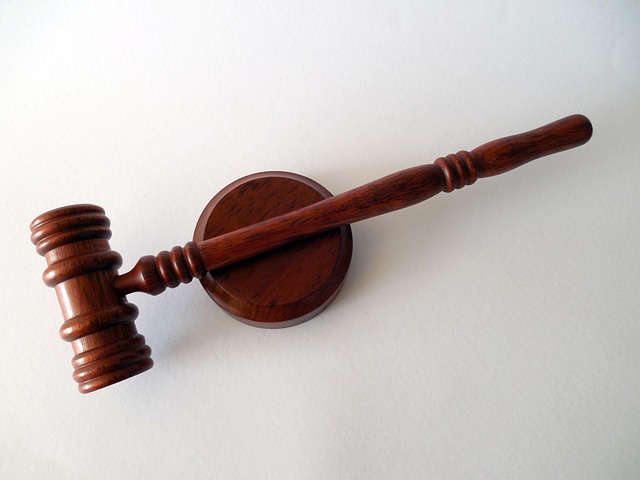Understanding Consumer Rights in Civil Litigation is vital for victims of antitrust violations seeking justice and for legal professionals aiming for exceptional outcomes. These cases aim to expose and rectify anticompetitive behaviors like price-fixing and monopoly formation, restoring market balance and protecting consumers from future harm. Consumers affected by practices such as price-fixing, market division, and abuse of dominant position can seek remedies through civil litigation, including damages, restitution, and injunctive relief. Success relies on evidence gathering, expert analysis, and collaborative efforts between consumer groups, communities, and clients to ensure market integrity and competitive prices.
In today’s competitive markets, understanding antitrust violation cases is paramount for both consumers and businesses. This article delves into defining these violations, highlighting consumer protections under antitrust laws. We explore common examples of unfair business practices and navigate civil litigation processes, focusing on rights and remedies. Additionally, we discuss legal strategies that favor consumers in court and analyze the impact and prevention of post-trial effects on businesses. Gain insights into understanding consumer rights in civil litigation.
- Defining Antitrust Violations: Consumer Protections
- Common Examples of Unfair Business Practices
- Navigating Civil Litigation: Rights and Remedies
- Legal Strategies for Consumer Victory in Court
- Impact and Prevention: Post-Trial Effects on Businesses
Defining Antitrust Violations: Consumer Protections

Antitrust violations refer to business practices that restrict competition or harm consumers by stifling market forces. These include actions such as price-fixing, where companies collude to set artificially high prices, and the formation of monopolies through merger or acquisition tactics that eliminate competitors. Consumer protections are a key aspect of antitrust laws, designed to ensure fair trade practices and safeguard purchasing power.
Understanding consumer rights in civil litigation involving antitrust violations is crucial for both victims seeking redress and legal professionals aiming to achieve extraordinary results for their clients. By exposing anticompetitive behaviors, these cases not only aim to avoid indictment but also to restore market equilibrium and protect consumers from future harm.
Common Examples of Unfair Business Practices

In the realm of civil litigation, understanding consumer rights is paramount when discussing antitrust violation cases. Common examples of unfair business practices include price-fixing, market division, and abuse of dominant market position. These tactics can deprive consumers of competitive prices, choices, and quality products or services. For instance, companies colluding to set prices at artificially high levels cheat consumers out of savings and limit their purchasing power.
Moreover, white-collar and economic crimes often involve intricate schemes that impact not just individual consumers but entire markets. When a business engages in such practices, it’s crucial for affected parties to know they have rights. A strong understanding of consumer protections enables victims to pursue justice through civil litigation, aiming for remedies like damages or injunctions to stop the unlawful behavior. An unprecedented track record of successful cases shows that individuals can stand up against powerful corporations and seek redress for antitrust violations.
Navigating Civil Litigation: Rights and Remedies

Navigating Civil Litigation involves a complex interplay of rights and remedies for individuals affected by antitrust violations. When consumers are harmed by anti-competitive practices, they have specific legal avenues to seek justice. Understanding Consumer Rights in Civil Litigation is crucial in ensuring that businesses adhere to fair market standards. By examining past cases, individuals can gauge the potential outcomes and strategies involved in these legal battles.
Civil litigation offers a range of remedies designed to achieve extraordinary results in addressing white-collar and economic crimes. Across the country, consumers have successfully pursued damages for lost profits, restitution, and injunctive relief to prevent future misconduct. These remedies not only compensate victims but also serve as deterrents, promoting fair competition and upholding antitrust laws.
Legal Strategies for Consumer Victory in Court

In antitrust violation cases, understanding consumer rights in civil litigation is paramount for achieving victory in court. Consumers have the right to file lawsuits under various federal and state laws designed to protect them from anti-competitive practices. Legal strategies often involve gathering compelling evidence of price fixing, market division, or monopolistic behavior. Experts can employ document reviews, witness interviews, and economic analyses to strengthen these cases, ensuring that consumers receive just compensation for any harm suffered due to illegal business practices.
A successful legal approach leverages the interplay between consumer advocacy groups, philanthropic and political communities, and corporate and individual clients. By fostering collaboration and sharing resources, these stakeholders can mount a formidable challenge to powerful businesses engaged in antitrust violations. Ultimately, this collective effort aims to protect market integrity and ensure that consumers have access to competitive prices and quality goods and services, achieving extraordinary results for all involved.
Impact and Prevention: Post-Trial Effects on Businesses

After a successful antitrust violation case, the impacts extend far beyond the immediate legal resolution. Businesses found guilty often face significant financial penalties, which can have a cascading effect on their operations and future strategies. These high-stakes cases not only carry substantial monetary fines but also result in reputational damage, affecting consumer trust and market standing. The consequences are particularly severe for companies involved in white-collar and economic crimes, where the potential for widespread disruption is high.
The aftermath of jury trials in these matters can lead to transformative changes within corporations. Many companies implement stricter compliance programs, enhance internal controls, and foster a culture of ethical behavior to prevent future antitrust violations. Understanding consumer rights in civil litigation plays a pivotal role in this process, as businesses strive to ensure transparency and fairness in their practices. This proactive approach helps build resilience against potential legal challenges and promotes sustainable business growth.
Understanding antitrust violations is crucial for both consumers and businesses, as it empowers individuals to protect their rights in civil litigation. By recognizing common examples of unfair business practices, consumers can navigate legal strategies that lead to victories in court. Ultimately, the impact and prevention of these cases extend far beyond the trial, shaping fair competition and enhancing consumer protections in the marketplace.






